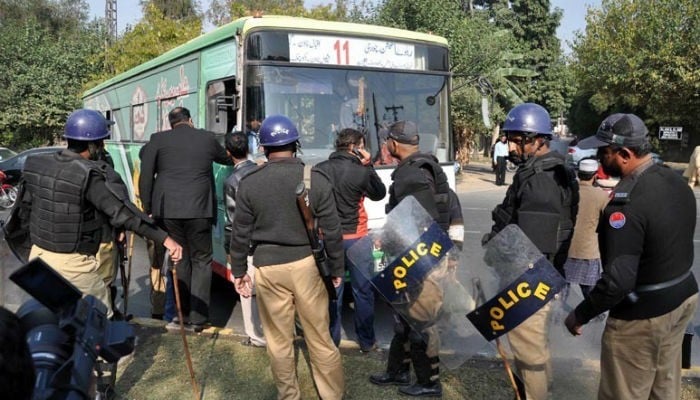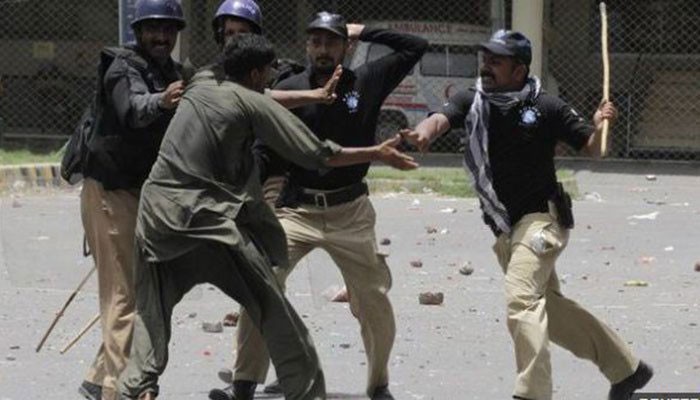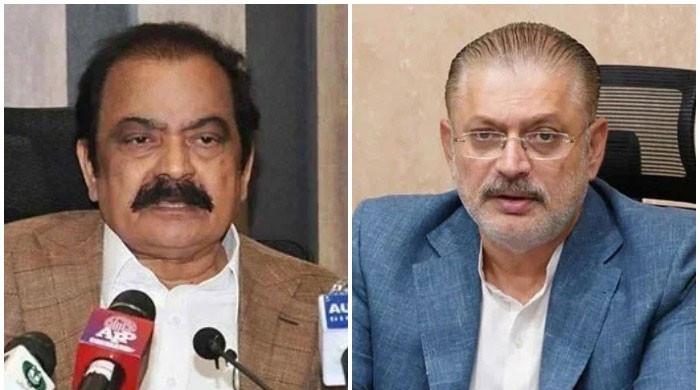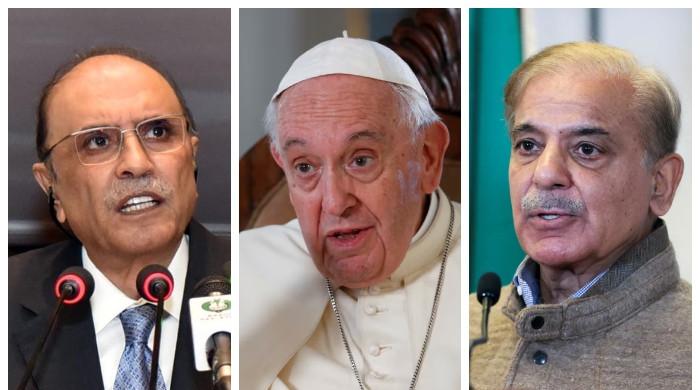LHC rejects petition to summon Sharif brothers in Model Town case
Punjab Inspector General Mushtaq Sukhera ordered to appear before trial court
September 26, 2018
LAHORE: The Lahore High Court on Wednesday rejected a petition to summon former prime minister Nawaz Sharif and former Punjab chief minister Shehbaz Sharif for the Model Town case.
At least 14 people were killed and 100 others injured in police action against Pakistan Awami Tehreek (PAT) workers in Lahore's Model Town area during an 'anti-encroachment operation' on June 17, 2014.
Jawad Hamid, a member of Minhaj-ul-Quran International, had filed the petition that requested the court to summon twelve individuals including former Punjab law minister Rana Sanaullah and Khawaja Saad Rafique.
Further, Punjab Inspector General Mushtaq Sukhera was ordered to appear before a trial court.
Soon after LHC announced the verdict, PAT chief Tahir-ul-Qadri said he was going to challenge the decision.
"How will justice be served unless those who plotted the Model Town incident are not summoned [to court].
Those accused, not their masters, were summoned [for the hearing]," Qadri said.
Model Town report
The Punjab government, at the behest of the Lahore High Court, had made the report of the Model Town incident public on December 5, 2017.
The inquiry report, prepared by Justice Baqir Najfi commission, said that police tried to cover up the facts regarding who gave orders to open fire on protesters.
It adds that no legal opinion was sought from the Punjab advocate general prior to the start of the operation.
The commission, in its report, also stated that on the ground, the standoff continued the whole night, resulting in minor injuries to police constables as well as PAT workers.
The commission observed: "The level of cooperation in digging out the truth is that no police official from top to bottom, whether actively participated in the operation or not, did utter a single word about the person under whose command the police resorted to firing upon the PAT workers."
Further, in its conclusion, the commission said, "It is shocking to note that everyone has deliberately but unsuccessfully tried to cover each other from possible adverse legal effects."














